
Grenville: The Heartbeat of Grenada
Grenville, the second largest town in Grenada, offers a vibrant blend of culture, history, and natural beauty. Nestled on the east coast of the island, this charming town provides a unique glimpse into the everyday life of Grenadians. With its bustling market, historical sites, and warm local hospitality, Grenville is a must-visit for anyone looking to experience the authentic Caribbean spirit. One of the main attractions in Grenville is the colorful Grenville Market, where you can find fresh produce, spices, and handmade crafts. The market is a great place to mingle with locals and taste some of Grenada's famous spices and exotic fruits. The town is also home to several historical landmarks, including the remains of old sugar mills and plantation houses that tell the story of Grenada's colonial past. Nature lovers will appreciate the proximity to natural attractions such as the Grand Etang National Park, which offers beautiful hiking trails and stunning views of the rainforest. Nearby, you can explore the pristine beaches and coral reefs that make Grenada a paradise for snorkelers and divers. With its rich history, vibrant market life, and natural beauty, Grenville is a hidden gem waiting to be discovered.
Local tips in Grenville
- Visit the Grenville Market early in the morning to experience the freshest produce and the liveliest atmosphere.
- Carry cash with you as many local vendors and small shops do not accept credit cards.
- Wear comfortable shoes when exploring the town and its natural surroundings, as the terrain can be uneven.
- Try the local street food, especially the oil down, which is Grenada's national dish.
- Be respectful of local customs and traditions when visiting historical sites and interacting with residents.
Grenville: The Heartbeat of Grenada
Grenville, the second largest town in Grenada, offers a vibrant blend of culture, history, and natural beauty. Nestled on the east coast of the island, this charming town provides a unique glimpse into the everyday life of Grenadians. With its bustling market, historical sites, and warm local hospitality, Grenville is a must-visit for anyone looking to experience the authentic Caribbean spirit. One of the main attractions in Grenville is the colorful Grenville Market, where you can find fresh produce, spices, and handmade crafts. The market is a great place to mingle with locals and taste some of Grenada's famous spices and exotic fruits. The town is also home to several historical landmarks, including the remains of old sugar mills and plantation houses that tell the story of Grenada's colonial past. Nature lovers will appreciate the proximity to natural attractions such as the Grand Etang National Park, which offers beautiful hiking trails and stunning views of the rainforest. Nearby, you can explore the pristine beaches and coral reefs that make Grenada a paradise for snorkelers and divers. With its rich history, vibrant market life, and natural beauty, Grenville is a hidden gem waiting to be discovered.
When is the best time to go to Grenville?
Iconic landmarks you can’t miss
Annandale Waterfall & Forest Park
Discover Grenada's easily accessible natural beauty at Annandale Waterfall & Forest Park, a serene escape into lush rainforest and cascading waters.
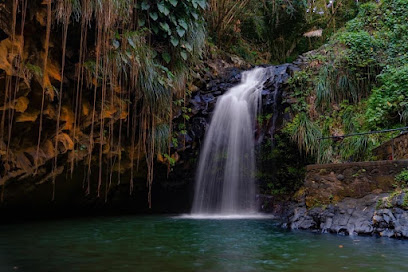
Belmont Estate
Discover Grenada's heritage at Belmont Estate: tours, chocolate making, gardens, and local cuisine in a beautiful plantation setting.
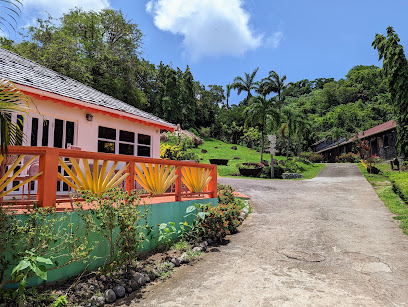
Fort George
Explore Grenada's iconic Fort George in St. George's: panoramic views, rich history, and stunning architecture await!
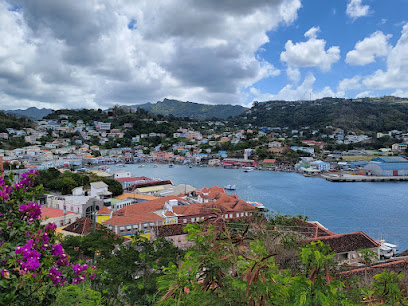
Grand Anse Craft and Spice Market
Discover Grenada's vibrant culture at Grand Anse Craft & Spice Market: local crafts, spices, and flavors await near the iconic Grand Anse Beach.
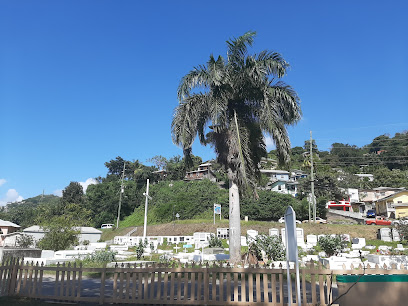
Fort Frederick
Explore Grenada's Fort Frederick for panoramic views and a unique glimpse into the island's military history and colonial past.
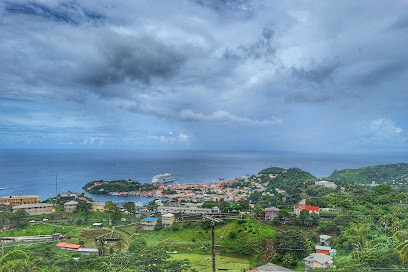
Concord Falls
Discover Grenada's natural beauty at Concord Falls: swim in refreshing pools, hike to hidden cascades, and explore lush rainforest surroundings.
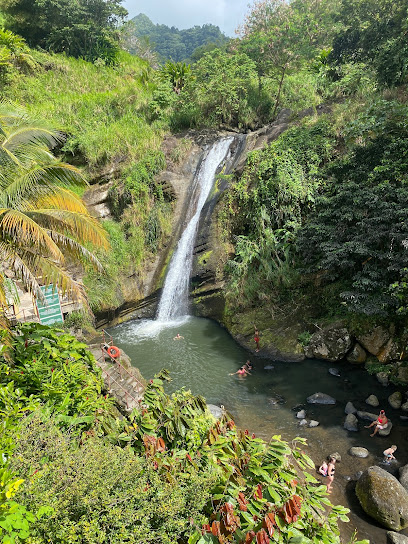
Mt Carmel Falls
Discover Grenada's tallest waterfall, Mt. Carmel Falls, a serene oasis surrounded by lush spice plantations and offering a refreshing natural pool.
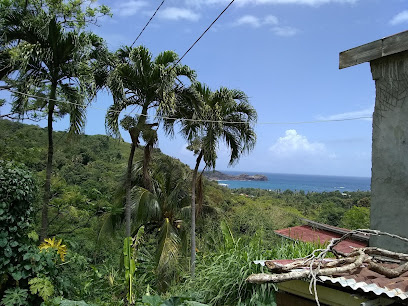
Leapers Hill
Discover Leapers Hill in Grenada: a historic landmark offering breathtaking views and a poignant reminder of the island's resilient past.
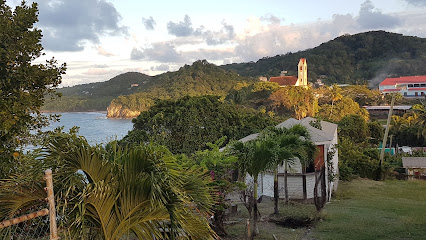
Christ of the Deep
Discover Grenada's Christ of the Deep: An underwater statue honoring the island's history and vibrant marine life in a unique sculpture park.
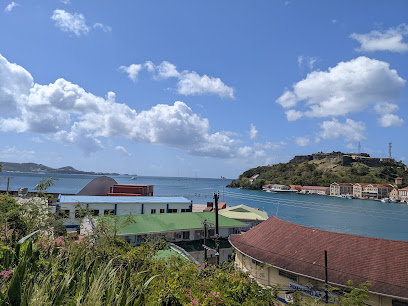
Welcome Stone
Discover Grenada's hidden gem: Welcome Stone offers panoramic views of turquoise waters, lush landscapes, and the Grenadine Islands.
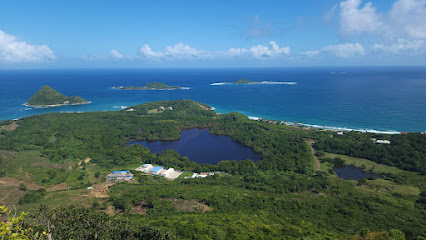
Grenada Underwater Sculpture Park
Experience the enchanting blend of art and marine life at Grenada Underwater Sculpture Park, a unique underwater museum showcasing stunning sculptures.
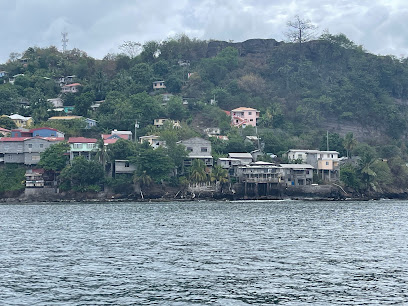
Levera Beach
Discover Levera Beach: A scenic Grenadian escape within a national park, offering tranquil beauty and vital nesting grounds for sea turtles.
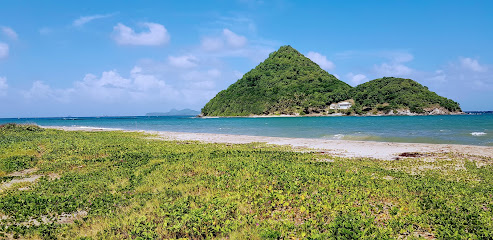
Grand Etang Lake
Discover Grenada's hidden gem: a stunning crater lake surrounded by lush rainforest, offering hiking, wildlife, and breathtaking views.
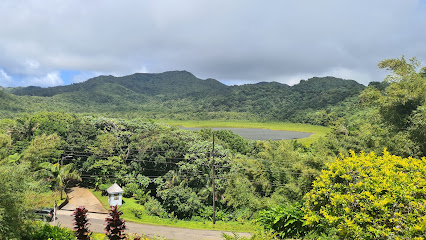
River Antoine Estate Rum Distillery
Discover Grenada's oldest rum distillery, where traditional methods and a historic waterwheel create a unique Caribbean spirit since 1785.
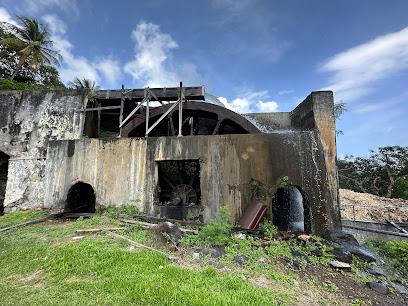
Grenada National Museum
Explore Grenada's captivating history and culture at the National Museum in St. George's, showcasing artifacts from its diverse past.
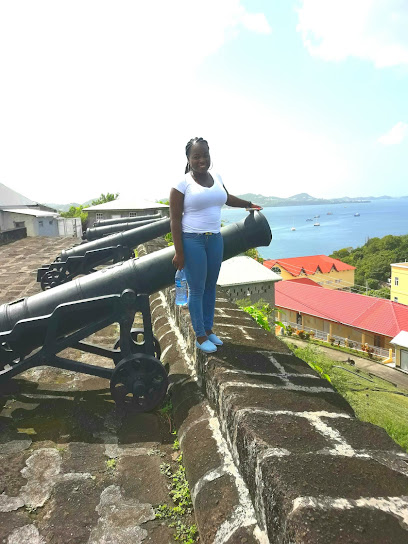
Unmissable attractions to see
Annandale Waterfall & Forest Park
Discover Grenada's easily accessible rainforest beauty at Annandale Waterfall: swim in refreshing waters and explore lush tropical scenery.
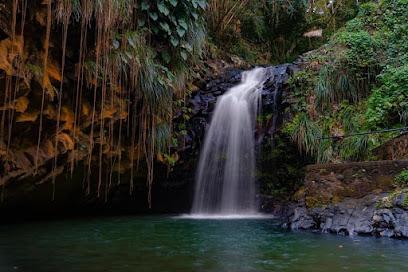
Grand Anse Beach
Experience paradise at Grand Anse Beach: Grenada's iconic shoreline with white sands, turquoise waters, and vibrant Caribbean charm.
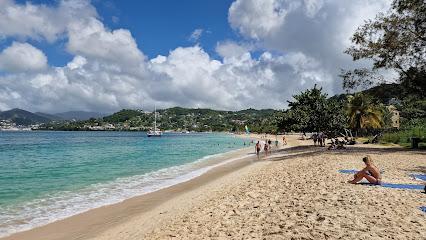
Belmont Estate
Discover Grenada's heritage at Belmont Estate: a 17th-century plantation offering cocoa tours, lush gardens, and authentic Grenadian experiences.
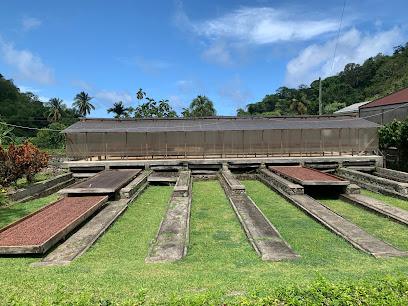
Grand Étang National Park
Discover Grenada's natural heart: rainforests, a volcanic lake, hiking trails, and diverse wildlife await in Grand Étang National Park.
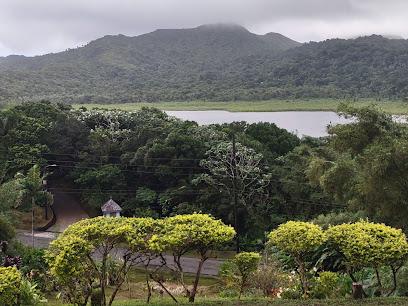
Esther's Bar
Experience the vibrant flavors of Grenada at Esther's Bar on Grand Anse Beach, where potent cocktails and island vibes create unforgettable memories.
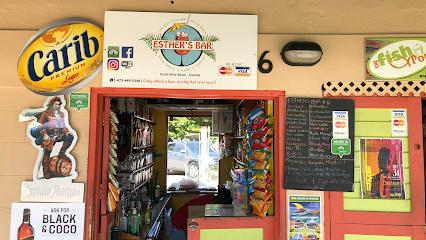
Grenada National Cricket Stadium
Experience the thrill of cricket at Grenada's iconic National Cricket Stadium, a hub of sports and culture in the heart of the Caribbean.
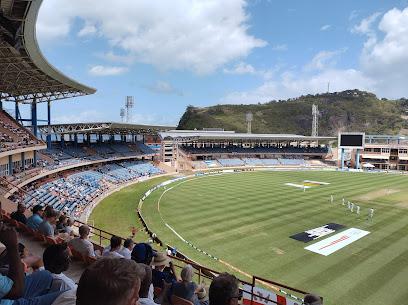
Diamond Chocolate Factory (Jouvay Chocolate)
Discover the sweet secrets of Grenadian cocoa at the Diamond Chocolate Factory, where history, tradition, and exquisite chocolate come together.
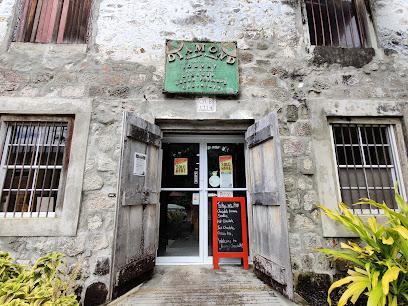
Concord Falls
Discover Grenada's natural beauty at Concord Falls, a trio of stunning waterfalls surrounded by lush rainforest.
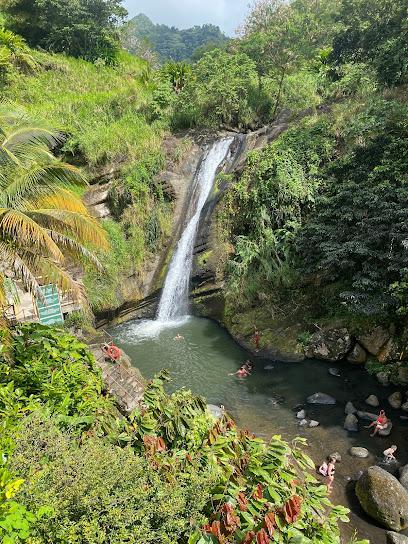
House of Chocolate Grenada Museum
Discover Grenada's rich cocoa heritage at this charming mini-museum and café, offering a sweet journey from bean to bar in the heart of St. George's.

West Indies Beer Company
Experience Grenada's craft beer scene at West Indies Beer Company, offering unique brews, delicious food, and a vibrant atmosphere in Lance aux Epines.
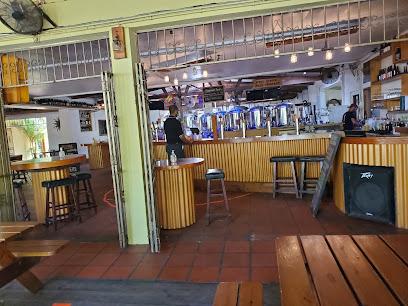
Leapers Hill
Discover Leapers Hill in Sauteurs, Grenada: a historic landmark offering stunning views and a poignant reminder of the island's past.
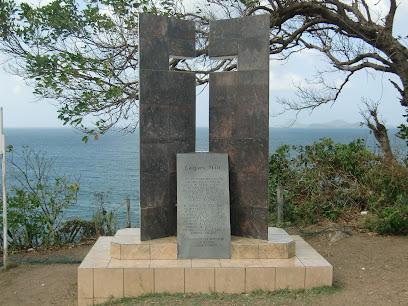
Bathway Beach
Discover Bathway Beach: A serene Grenadian escape with calm waters, local charm, and stunning natural beauty on the northeastern coast.
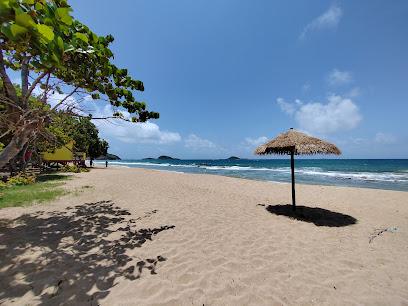
Grenada Underwater Sculpture Park
Explore the enchanting Grenada Underwater Sculpture Park, where art and marine life coexist in a breathtaking underwater gallery.
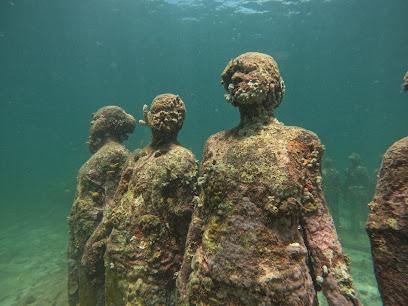
Laura Herb & Spice Garden
Explore Grenada's 'Spice Isle' heritage at Laura Herb & Spice Garden: a sensory journey through fragrant spices and local traditions.
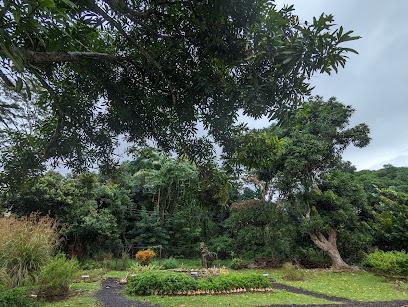
Seven Sisters Waterfalls
Discover Grenada's Seven Sisters Waterfalls: Hike through lush rainforest to refreshing cascades and natural pools in Grand Etang National Park.
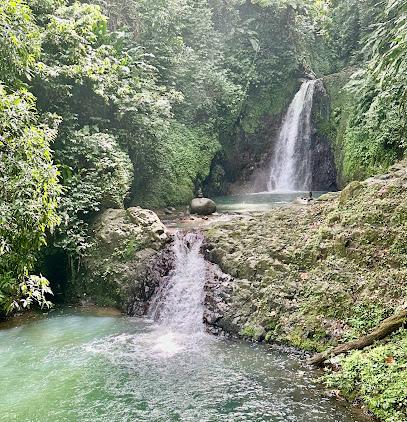
Essential places to dine
Patrick's Local Homestyle Restaurant
Experience the rich tapestry of Caribbean cuisine at Patrick's Local Homestyle Restaurant in St. George's, Grenada - where every meal is a celebration of local flavors.
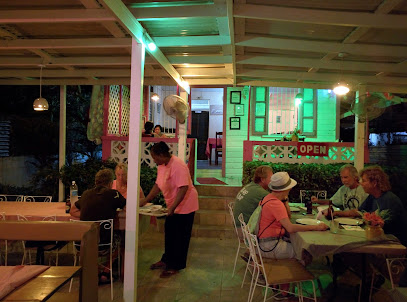
KFC Grenvillh
Experience delicious fast food at KFC Grenvillh in Grenada, offering mouthwatering fried chicken and a welcoming atmosphere for all visitors.
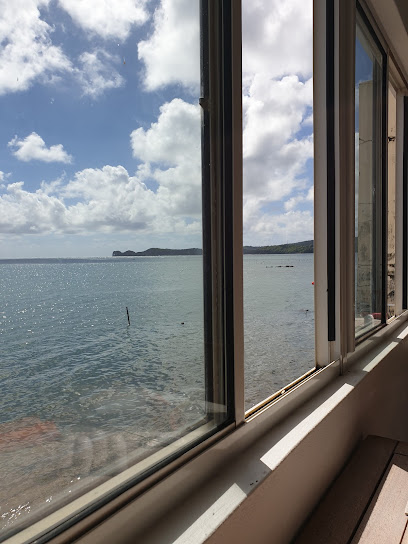
Spice Isle Restaurant And Bar
Discover authentic Caribbean flavors at Spice Isle Restaurant and Bar in beautiful Grenada.
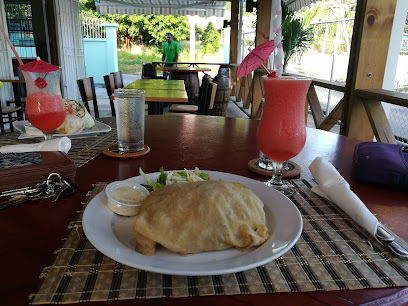
Laura's
Discover authentic Grenadian flavors at Laura's Restaurant – where every dish tells a story.
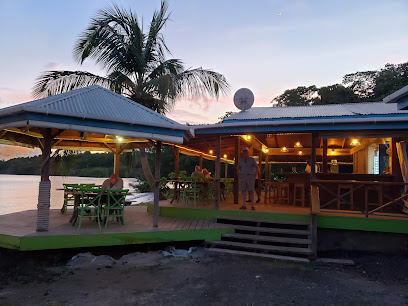
Kelly's Hot Spot
Discover authentic Grenadian flavors at Kelly's Hot Spot in Gouyave – where every dish tells a story.
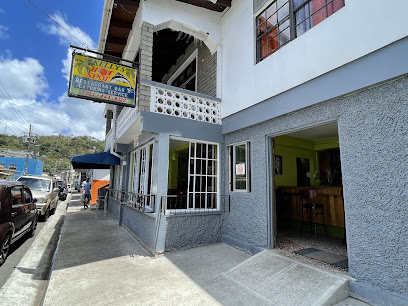
Bumpy Corner Bar
Discover Bumpy Corner Bar: A vibrant restaurant and bar in Grenville offering exquisite local cuisine and stunning views.
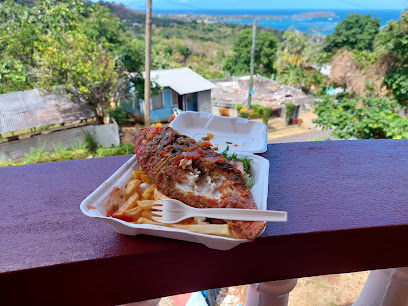
Good Food
Experience authentic Caribbean flavors at Good Food in Grenville, where delicious meals meet warm hospitality in a vibrant setting.
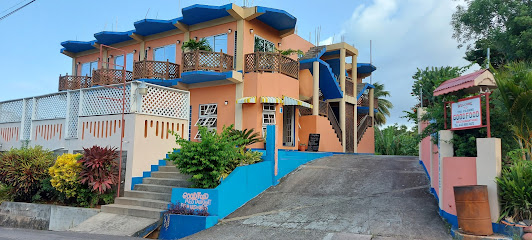
My Place for Roti & Doubles
Experience authentic Grenadian cuisine at My Place for Roti & Doubles - a must-visit destination for food lovers exploring Grenville.
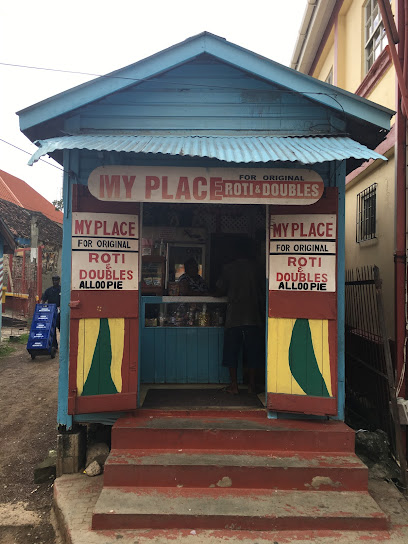
Boots Cuisine
Discover authentic Caribbean flavors at Boots Cuisine in Grenada, where every dish tells a story of local culture and culinary excellence.
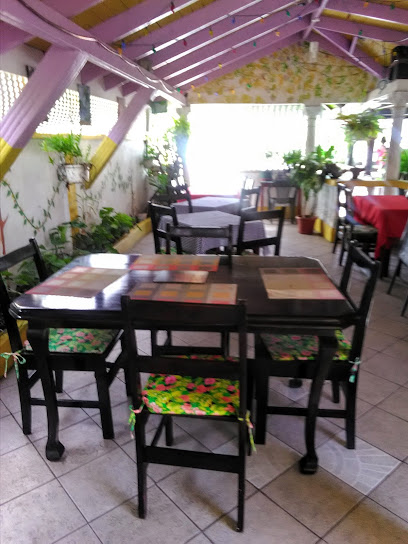
Dre Flavors Restaurant & Catering Services
Experience the vibrant flavors of Grenada at Dre Flavors Restaurant & Catering Services - A culinary journey through authentic Caribbean cuisine.
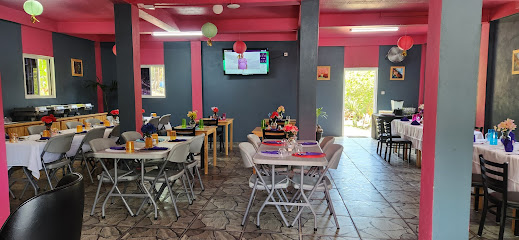
The Melting Pot
Discover delightful local cuisine at The Melting Pot in Grenville - where every dish tells a story.
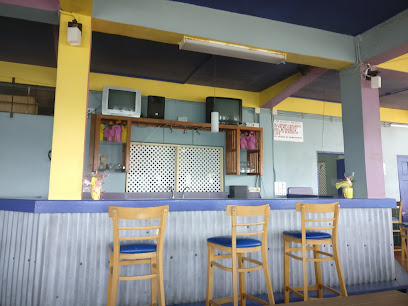
New Thriving Restaurant
Experience authentic Asian cuisine at New Thriving Restaurant in Grenville, where flavor meets culture in an inviting atmosphere.
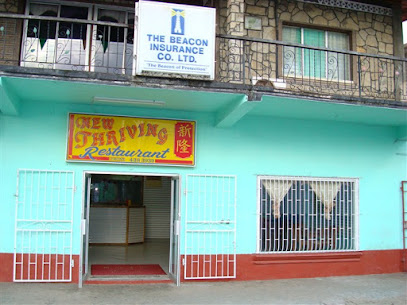
Kathy’s Soul Food
Discover authentic Caribbean flavors at Kathy's Soul Food in Grenville - A delightful dining experience steeped in tradition.
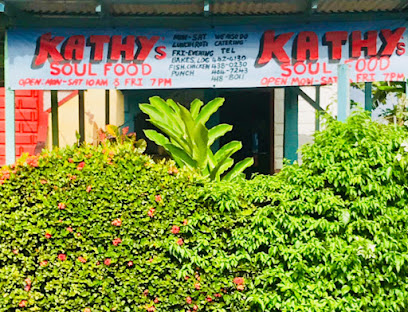
Seamoon Restaurant, Bar & Lounge
Experience authentic Caribbean flavors at Seamoon Restaurant, Bar & Lounge in Simon, Grenada – where exceptional cuisine meets stunning views.
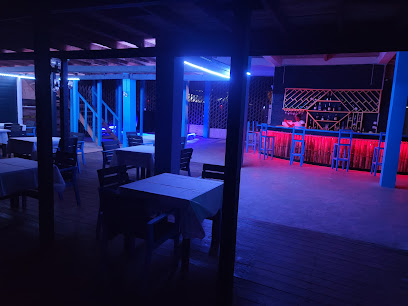
Flavours of Belmont
Experience the best of Caribbean cuisine at Flavours of Belmont in Grenville - where family-friendly dining meets local flavors.
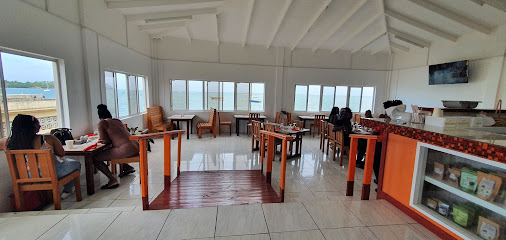
Markets, malls and hidden boutiques
Kalico Shopping Centre
Discover the vibrant Kalico Shopping Centre in Grenville, Grenada, where local flavors and unique treasures await every visitor.
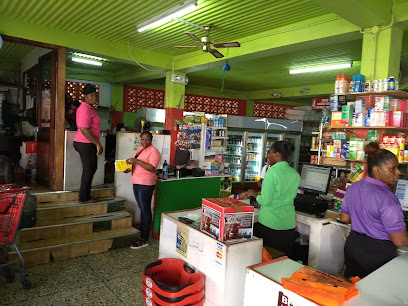
Andall & Associates
Explore Grenada's local flavors and essentials at Andall & Associates, a vibrant supermarket in Grenville, perfect for tourists seeking quality goods.
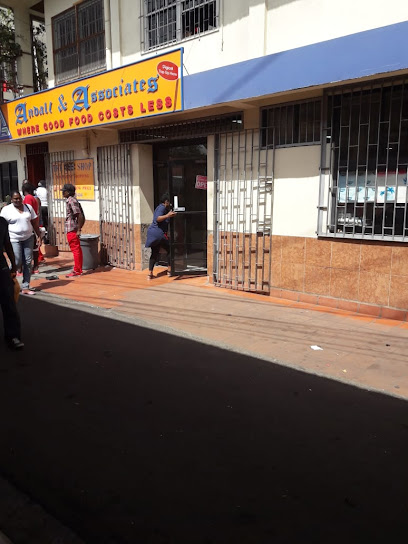
Graham Sports & Fitness Ltd.
Discover top-notch sporting goods, clothing, and supplements at Graham Sports & Fitness Ltd. in Grenville, Grenada - your active lifestyle starts here.
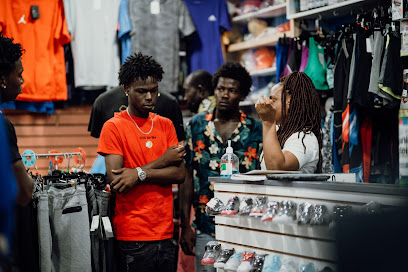
Washie Supermarket
Experience the local flavors and vibrant culture at Washie Supermarket in Grenville, Grenada – your one-stop shop for fresh produce and local goods.

Sweet & Savory (Sugar & Spice)
Discover Sweet & Savory in Grenville, Grenada: a delightful ice cream shop offering local flavors and a taste of Caribbean hospitality.
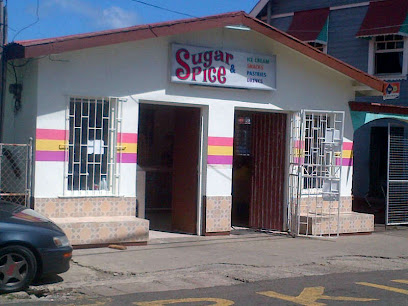
Grenville Hot Spot
Experience the essence of Grenada at Grenville Hot Spot, where fresh produce and local flavors come together in a vibrant supermarket setting.

Archibald Distributor's
Explore the diverse offerings at Archibald Distributor's, your go-to supermarket in Grenville, Grenada for fresh produce and local delicacies.
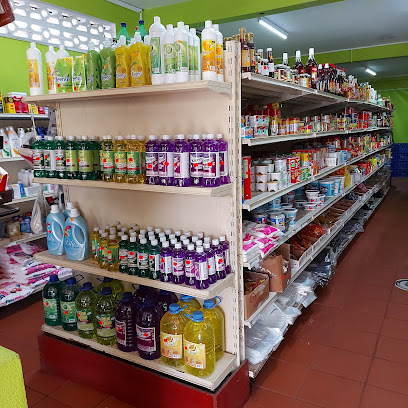
Ramdhanny's Fabric Store, Grenville
Discover vibrant fabrics and authentic Grenadian textiles at Ramdhanny's Fabric Store in Grenville, where creativity and culture come together.
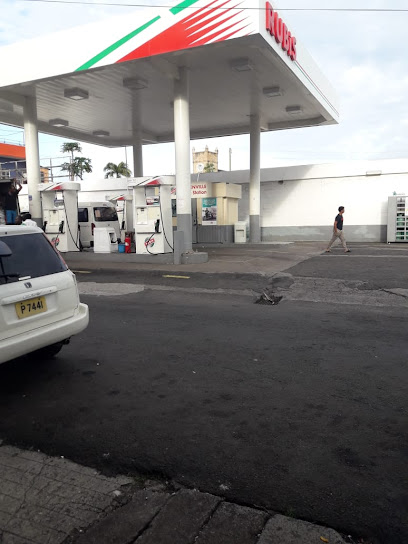
Courts Grenville
Discover stylish home furnishings and local craftsmanship at Courts Grenville, Grenada’s top destination for furniture shopping.
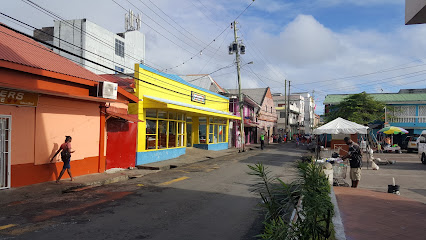
ShopNSave
Discover local flavors and everyday essentials at ShopNSave, the go-to supermarket in Grenville, Grenada.
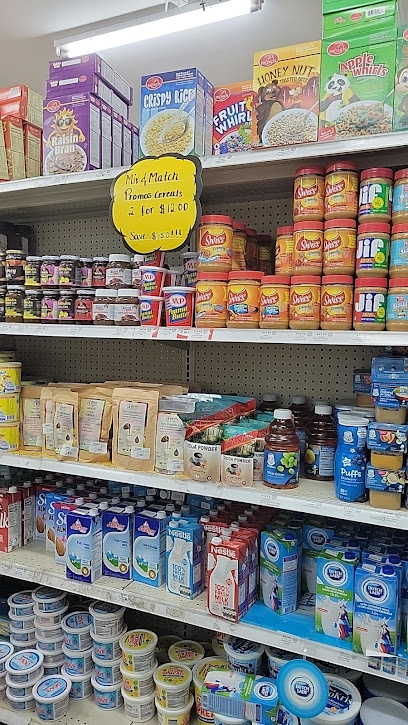
Tattoo Flat Grenada
Experience the vibrant art of tattooing at Tattoo Flat Grenada, where creativity meets culture in every design.
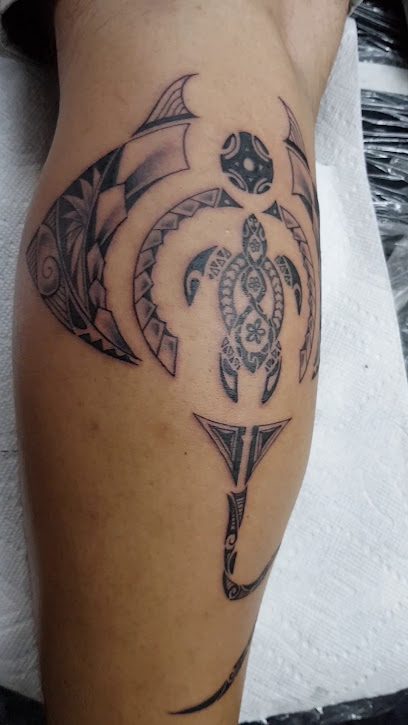
Hankey's Computer Services Grenville
Explore the best of Grenville's tech scene at Hankey's Computer Services, your reliable electronics store in Grenada.

China Mall
Experience unique shopping and vibrant local culture at China Mall in Grenada, your gateway to a memorable Caribbean shopping adventure.
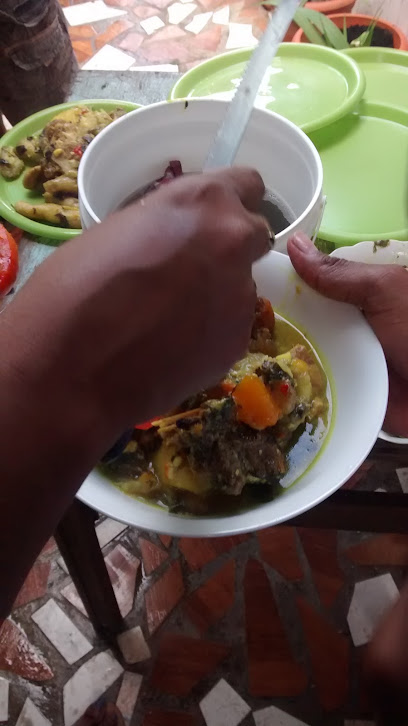
Finer Threads Grenada
Explore Finer Threads Grenada for stylish men's clothing that combines local culture with contemporary fashion, located in the heart of Grenville.
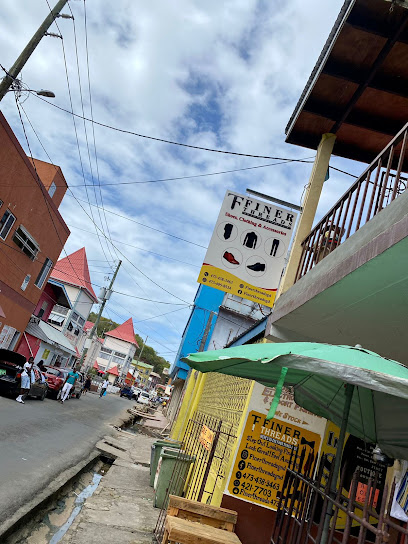
Sm Enterprise
Explore cutting-edge electronics and exceptional service at Sm Enterprise, Grenville's premier electronics store, perfect for all your tech needs.

Essential bars & hidden hideouts
Good Food
Experience the rich flavors of Caribbean cuisine at Good Food, a delightful restaurant in Grenville, Grenada, perfect for tourists seeking local culinary delights.
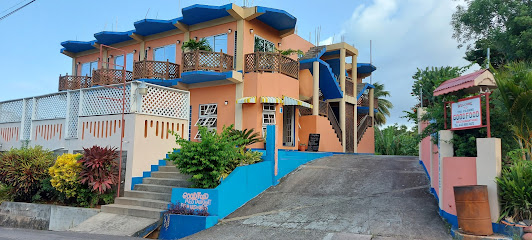
My Place for Roti & Doubles
Experience authentic Caribbean cuisine at My Place for Roti & Doubles in Grenville – a culinary haven for food lovers.
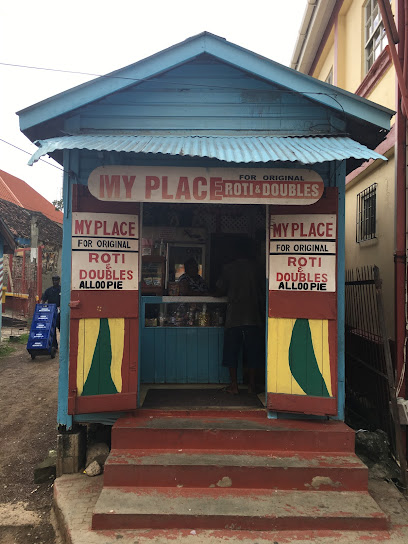
The Melting Pot
Discover the flavors of Grenada at The Melting Pot, where local ingredients meet culinary creativity in a cozy atmosphere.
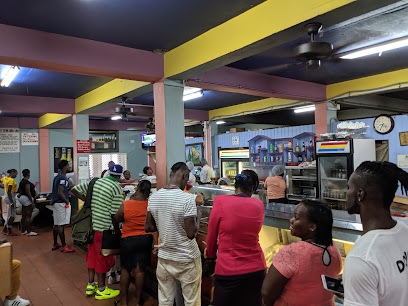
Twilight
Experience the vibrant nightlife of Grenville at Twilight, a bar that offers a unique blend of local charm and lively atmosphere.

Mega Sports Bar
Experience the thrill of sports at Mega Sports Bar in Telescope, Grenada - your go-to spot for food, drinks, and live games.
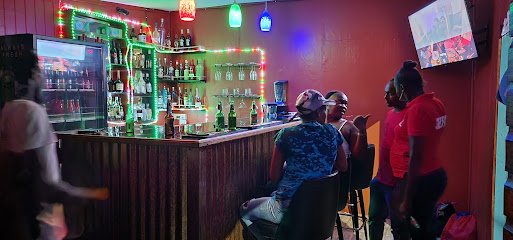
Flavours of Belmont
Experience the rich flavors of Grenadian cuisine at Flavours of Belmont, a family-friendly restaurant in Grenville, offering a warm atmosphere and authentic dishes.
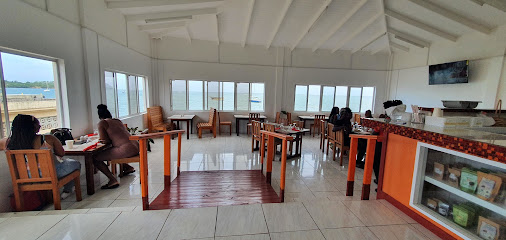
Jahwahs Entertainment Venue
Discover the vibrant flavors of Grenada at Jahwahs Entertainment Venue, where local cuisine meets lively entertainment.
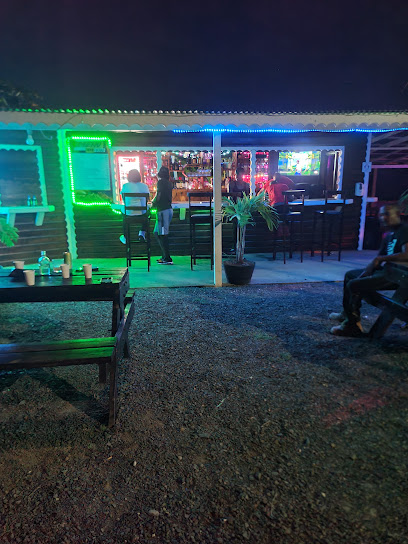
BP Bar ń Grill (Big Parish)
Experience the vibrant culinary scene at BP Bar ń Grill in Grenville, where delicious grilled dishes and a lively atmosphere await every visitor.
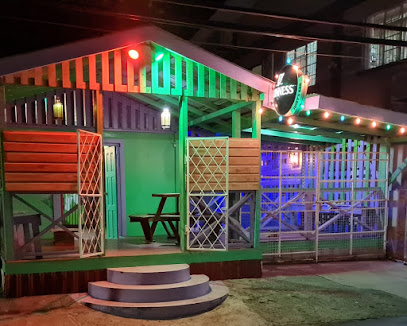
BLAST
Experience the authentic taste of Grenada at BLAST, a must-visit restaurant in Grenville offering local flavors and a vibrant atmosphere.
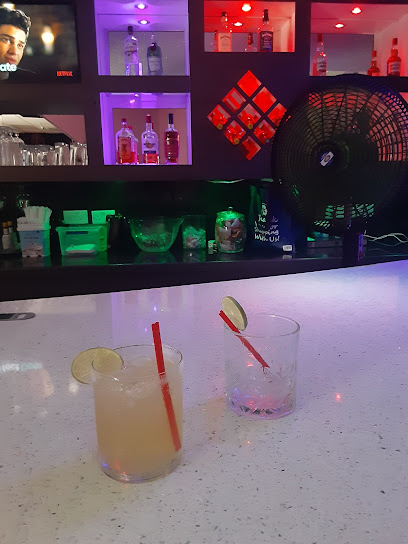
Maxie Bar
Experience the vibrant atmosphere and delicious local flavors at Maxie Bar in Grenville, Grenada, a must-visit for every traveler.

D' Hide Out Bar
Discover D' Hide Out Bar in Grenville, the perfect spot to enjoy local drinks and vibrant Caribbean culture.
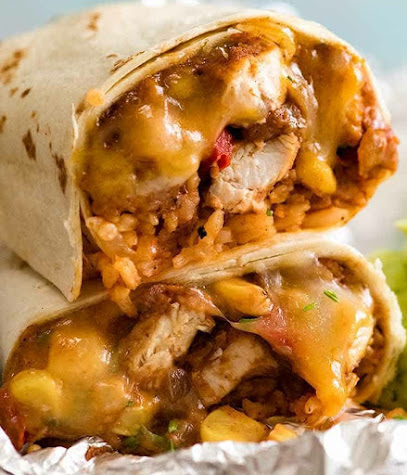
La Baye Anchor
Experience the vibrant ambiance and refreshing drinks at La Baye Anchor, a hidden gem bar in Grenville, Grenada.
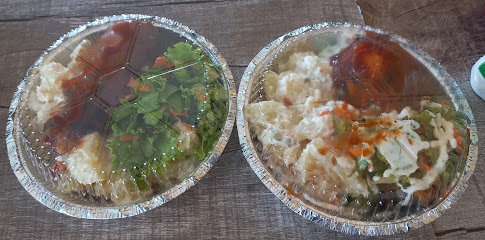
Alston Bar-B-Que (Grenville)
Discover authentic Caribbean barbecue at Alston Bar-B-Que in Grenville, where every meal is a flavorful journey through Grenadian cuisine.
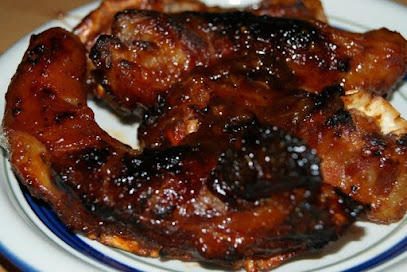
smallvillé bar
Experience the vibrant atmosphere and authentic Caribbean flavors at Smallvillé Bar in Grenville, the heart of Grenada.

Local Phrases
-
- HelloHello
[Heh-low] - GoodbyeGoodbye
[Gud-bye] - YesYes
[Yehs] - NoNo
[Noh] - Please/You're welcomePlease/You're welcome
[Pleez/Yuh wah-kum] - Thank youThank you
[Tank yuh] - Excuse me/SorryExcuse me/Sorry
[Eks-kyooz mee/Saw-ree] - How are you?How are you?
[How ah yuh?] - Fine. And you?Fine. And you?
[Fyne. An yuh?] - Do you speak English?Do you speak English?
[Doo yuh speek Ing-glish?] - I don't understandI don't understand
[I dohn un-der-stan]
- HelloHello
-
- I'd like to see the menu, pleaseI'd like to see the menu, please
[Ah yed like to see deh men-yoo, pleez] - I don't eat meatI don't eat meat
[I dohn eet meet] - Cheers!Cheers!
[Chee-yuhs!] - I would like to pay, pleaseI would like to pay, please
[Ah wood like to pay, pleez]
- I'd like to see the menu, pleaseI'd like to see the menu, please
-
- Help!Help!
[Help!] - Go away!Go away!
[Go uh-way!] - Call the Police!Call the Police!
[Kahl deh Poh-leece!] - Call a doctor!Call a doctor!
[Kahl ah daw-ktuh!] - I'm lostI'm lost
[Ahm lost] - I'm illI'm ill
[Ahm eel]
- Help!Help!
-
- I'd like to buy...I'd like to buy...
[Ah yed like to bahy...] - I'm just lookingI'm just looking
[Ahm jehst look-ing] - How much is it?How much is it?
[How much is it?] - That's too expensiveThat's too expensive
[Dats too ek-spen-siv] - Can you lower the price?Can you lower the price?
[Kan yuh loh-wer deh prahys?]
- I'd like to buy...I'd like to buy...
-
- What time is it?What time is it?
[Wat tahym iz it?] - It's one o'clockIt's one o'clock
[Itz wun oh-klok] - Half past (10)Half past (10)
[Hahf past (10)] - MorningMorning
[Mawn-ing] - AfternoonAfternoon
[Af-tuh-noon] - EveningEvening
[Ee-ven-ing] - YesterdayYesterday
[Yes-tuh-day] - TodayToday
[Toh-day] - TomorrowTomorrow
[Toh-mah-row] - 11
[Wun] - 22
[Too] - 33
[Tree] - 44
[Fohr] - 55
[Fahyv] - 66
[Siks] - 77
[Seh-vun] - 88
[Ey-t] - 99
[Nayn] - 1010
[Ten]
- What time is it?What time is it?
-
- Where's a/the...?Where's a/the...?
[Wehrz ah/deh...?] - What's the address?What's the address?
[Wats deh uh-dress?] - Can you show me (on the map)?Can you show me (on the map)?
[Kan yuh show mee (on deh map)?] - When's the next (bus)?When's the next (bus)?
[Whenz deh nekst (bus)?] - A ticket (to ....)A ticket (to ....)
[Ah tik-kit (to ....)]
- Where's a/the...?Where's a/the...?
History of Grenville
-
Grenville, located on the eastern coast of Grenada, was established during the colonial era. It was named after British Prime Minister George Grenville. The town quickly grew into an important center for trade and commerce, leveraging its strategic location and natural harbor.
-
During the 18th and 19th centuries, Grenville became a hub for the sugar industry. The fertile lands around the town were used for extensive sugar cane plantations. The labor force was primarily composed of enslaved Africans, whose contributions were critical to the economic growth of the region.
-
Grenville played a significant role in the Fédon Rebellion, also known as the 1795 Slave Rebellion. Julien Fédon, a free mixed-race planter, led a revolt against British colonial rule, which aimed to end slavery and establish equality. The rebellion had a profound impact on Grenville and the surrounding areas.
-
Following the abolition of slavery in 1834, Grenville underwent a period of transformation. Former slaves began to establish their own communities and small farms. The town saw a diversification of its economy, with cocoa replacing sugar as the primary export crop.
-
In the early 20th century, Grenville became synonymous with nutmeg production. Grenada, known as the 'Isle of Spice,' saw a significant increase in nutmeg cultivation. Grenville's market became a bustling center where farmers sold their produce, contributing to the town's prosperity.
-
Grenville was severely affected by Hurricane Ivan in September 2004. The hurricane caused widespread destruction, damaging homes, businesses, and infrastructure. The community displayed remarkable resilience, and rebuilding efforts began almost immediately, with international aid playing a crucial role.
-
Grenville is renowned for its rich cultural heritage, with vibrant celebrations such as the annual St. Andrew's Day festivities. Local traditions, music, dance, and cuisine reflect the town's diverse history. Grenville's market remains a cultural focal point, offering a glimpse into everyday life and the town's enduring spirit.
Grenville Essentials
-
Grenville is located on the eastern coast of Grenada. The nearest international airport is Maurice Bishop International Airport (GND) in St. George's, approximately 40 kilometers away. From the airport, you can take a taxi or a rental car to reach Grenville. The journey typically takes around 1 hour by road. Alternatively, you can use the local bus service from St. George's to Grenville, which is both affordable and scenic.
-
Grenville is a small town, and many of its attractions are within walking distance. For longer trips, local minibuses (known as 'Reggae buses') are readily available and inexpensive. Taxis are also available, but it's advisable to agree on a fare before starting your journey. Renting a car can be a convenient option for exploring the surrounding areas at your own pace.
-
The official currency in Grenada is the Eastern Caribbean Dollar (XCD). US Dollars are also widely accepted. Credit cards are accepted in most hotels, restaurants, and shops, but it is advisable to carry some cash for smaller establishments and local markets. ATMs are available in Grenville, but it's a good idea to have some cash on hand, especially when traveling to rural areas.
-
Grenville is generally a safe destination for tourists, but it is advisable to take standard precautions. Avoid walking alone at night in unfamiliar areas and always keep an eye on your belongings in crowded places. Some areas, such as certain parts of the market district, can be prone to petty theft, so remain vigilant.
-
In case of emergency, dial 911 for immediate assistance. The local police station and medical facilities are available in Grenville. It is recommended to have travel insurance that covers medical emergencies. For minor health issues, there are pharmacies in the town where you can purchase over-the-counter medications.
-
Fashion: Do dress modestly, especially when visiting religious sites. Avoid wearing overly revealing clothing. Religion: Do respect local customs and traditions. Public Transport: Do be respectful and give up your seat to elderly passengers. Don’t eat or drink on public transport. Greetings: Do greet people with a friendly 'Good morning' or 'Good afternoon.' Eating & Drinking: Do try local delicacies and accept food offerings graciously. Don’t refuse hospitality, as it is considered impolite.
-
To experience Grenville like a local, visit the local markets where you can buy fresh produce and traditional Grenadian goods. Engage with locals, as they are often friendly and willing to share stories about the town's history and culture. Don’t miss trying the local dish 'Oil Down,' a hearty stew made with breadfruit, salted meat, and coconut milk. For a unique experience, take a stroll along the coast and enjoy the scenic views of the Atlantic Ocean.
Trending Landmark in Grenville
-
Annandale Waterfall & Forest Park
-
Belmont Estate
-
Fort George
-
Grand Anse Craft and Spice Market
-
Fort Frederick
-
Concord Falls
-
Mt Carmel Falls
-
Leapers Hill
-
Christ of the Deep
-
Welcome Stone
-
Grenada Underwater Sculpture Park
-
Levera Beach
-
Grand Etang Lake
-
River Antoine Estate Rum Distillery
-
Grenada National Museum
Nearby Cities to Grenville
-
Things To Do in Sauteurs
-
Things To Do in Victoria
-
Things To Do in Guava
-
Things To Do in Gouyave
-
Things To Do in Westerhall
-
Things To Do in Hillsborough
-
Things To Do in Union Island
-
Things To Do in Mayreau
-
Things To Do in Canouan
-
Things To Do in Mustique
-
Things To Do in Port Elizabeth
-
Things To Do in Bequia
-
Things To Do in Kingstown
-
Things To Do in Barrouallie
-
Things To Do in Chateaubelair









